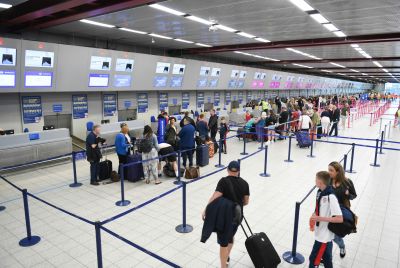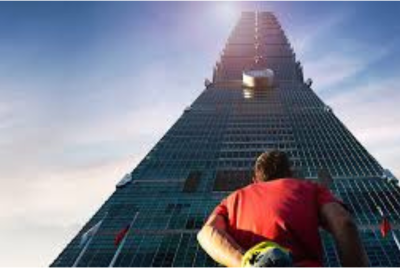TikTok Influencer Slammed for 'Insensitive' Jamaica Holiday as Locals Flee Hurricane Melissa
TikTok star Hannah Grubs slammed for vacationing in Jamaica as Hurricane Melissa devastates locals and forces mass evacuations.

As one of the strongest storms in recent history bore down on Jamaica, a social media influencer sparked global outrage for flaunting her Caribbean getaway online. The creator's light-hearted videos of cocktails and palm trees clashed sharply with the fear and destruction caused by Hurricane Melissa, leading to widespread condemnation for her perceived insensitivity.
Hurricane Melissa Turns Deadly
Hurricane Melissa, classified as a Category 5 cyclone, has become one of the most powerful Atlantic storms on record. With sustained winds reaching nearly 185 mph, the storm has already claimed at least seven lives across the Caribbean and forced over a million and a half people in Jamaica to evacuate or take shelter.
The country's prime minister, Andrew Holness, declared mandatory evacuations across coastal communities, warning that no infrastructure could withstand such force. For many residents, the storm represented a life-or-death struggle to find safety, with shelters filled and emergency services stretched thin.
While the island braced for impact, meteorologists described Melissa as "the storm of the century." The World Meteorological Organization forecast a storm surge of up to 13 feet across parts of southern Jamaica, leaving low-lying areas at dire risk.
Images from Kingston and Montego Bay showed streets turning into rivers as winds battered homes and trees, all while thousands remained trapped without power or communication. It was in this atmosphere of fear and devastation that one American TikTok creator's vacation videos began circulating online, which were videos that many saw as callous and detached from reality.
The Backlash on TikTok Influencer Hannah Grubbs
Hannah Grubbs, a 20-something influencer with several hundred thousand followers, posted multiple clips from her resort in Negril, Jamaica, as the hurricane's outer bands began to hit the island.
In one video, she joked about the storm 'messing with my vacation' while posing on her balcony; in another, she filmed herself walking through an airport, announcing she was 'heading to Jamaica in a Category 5 hurricane.' The tone of the content drew immediate anger, with users on TikTok and X accusing her of trivialising a disaster that threatened millions of lives.
Critics online called her actions 'tone deaf' and 'irresponsible,' suggesting that her presence not only risked her own safety but also strained local resources needed for residents trying to survive.
Some commenters expressed disbelief that she had flown to Jamaica knowing a storm was imminent, while others accused her of taking advantage of workers who had been unable to abandon their posts to secure their families. The influencer's posts were soon removed after the backlash intensified and reporters from international outlets reached out for comment.
By then, screenshots and clips had already spread widely, with many users contrasting her vacation footage with imagery of locals queuing for supplies and emergency responders battling near-impossible conditions.
The criticism came not simply from the insensitivity of her jokes but from what her actions symbolised, which was the growing disconnect between social media spectacle and the real-world suffering it can overshadow.
Consequences and Reflection

In the days that followed, major outlets such as The New York Post, People, and Indiatimes covered the controversy, amplifying the outrage further. Humanitarian groups voiced frustration that tourism-based social media content often diverts attention from local crises, blurring the line between privilege and recklessness.
As emergency services across Jamaica continued rescue operations, discussions online shifted toward ethics in influencer culture, particularly around disaster zones and developing nations.
The influencer has since expressed concern for the island in a later post and claimed that resort staff had moved guests to higher floors for safety. However, the damage to her reputation appears to have been done.
Commentators across platforms have argued that the incident should serve as a cautionary tale about the responsibility that comes with having a large online audience, especially when posting from regions facing humanitarian emergencies.
While much of the focus remains on the devastation left by Hurricane Melissa, the incident has reignited debates about privilege, empathy, and the dark side of digital stardom. For countless Jamaicans, the battle against the storm continues, not for likes or views, but for survival and recovery. For the rest of the world, it stands as a reminder that not every moment should be content.
© Copyright IBTimes 2025. All rights reserved.





















